Comments and Issues
Cape Verde vs ECOWAS Court: When greed overrides reasoning and decency
Published
5 years agoon
By
Publisher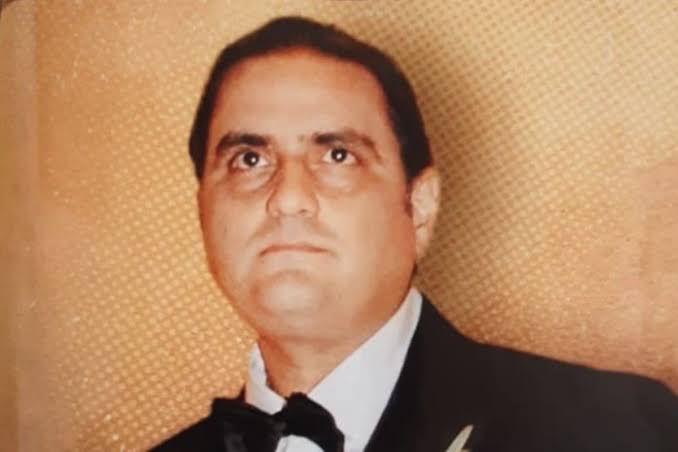
By Sola Alakija
Without mincing words, Cape Verdean government’s reasons for the continued disobedience to a ruling of the regional ECOWAS Community Court of Justice (ECCJ), are at best unconvincing and at worst deliberately offensive and skewed for pecuniary gains.
How else can anyone describe the attitude of the Republic of Cape Verde in reaction to the order of the ECCJ if not to say it is absurd?
Alex Saab, a citizen Venezuelan of Colombian origin was arrested on June 12, 2020 by Cape Verdean authorities when the flight he was travelling on from Caracas, Venezuela, to Tehran, Iran, stopped for refuelling in Cape Verde.
Upon arrest, Saab was told he was being detained in response to a Red Notice issued by the International Criminal Police Organisation (Interpol). A Red Notice is a request to law enforcement worldwide to locate and provisionally arrest a person pending extradition or similar legal action. Red Notices are issued by Interpol at the request of a member country. In this case, the request had come from the US government.
First the ECCJ on December 2nd, 2020, asked Cape Verde in its ruling to immediately comply with a series of measures concerning the health of Venezuelan citizen Alex Saab, by granting him immediate and unrestricted access to his family, to medical treatments and to full legal and consular access. This ruling, the Cape Verdean authourities bluntly refused to implement.
No doubt, the arrest and detention of Saab has opened a Pandora’s Box of complex international legal issues as well as questions of national sovereignty, United Nations and African Union human rights charters and the rule of customary international law. It has also set Cape Verde on a collision course with ECOWAS, of which it is a member and it is hoped the country appreciates this.
If Cape Verde had fulfilled its ECOWAS obligations, its obligations under the UN Charter and centuries of international law governing the movement of diplomats, rather than cave into pressure from the United States, then the last ten months of the illegal detention of the Venezuelan diplomat would have been avoided.
Interpol has serious questions to answer about its repeated willingness to bend to political pressure from big countries like the United States. Interpol has a serious reputation problem and this is just making it worse. It’s impossible to trust what should be an independent international cooperation framework when it can be abused and twisted so easily.
As it has emerged as shown by the ECCJ court document, the Interpol Red Notice was issued the day after Alex Saab was arrest and not before as required by law. This, his defence attorney argues, highlights the “political” motivations behind Saab’s arrest rather than it being the criminal matter which both Cape Verde and the US are claiming. And clearly this makes the arrest illegal under Interpol’s own constitution as it is forbidden from interfering in politically motivated cases as affirmed by the ECOWAS Court on 15 March 2021.
The ECCJ found the authorities on the Atlantic Ocean island nation carried out Saab’s arrest before a so-called Red Notice was issued by Interpol.
“We found his arrest by the criminal police of Cape Verde was arbitrary and subsequent detention throughout the period until today was illegal,” Justice Edward Amoako Asante said at the Abuja-based tribunal. “Cape Verde should immediately release the applicant from their custody and immediately stop all processes to extradite him,” he ruled.
As rightly described by some legal luminaries, the position of Cape Verde on the issue of the arrest and planned extradition of the Venezuelan diplomat is seen as a litmus test of whether or not “superpower impunity” or “extraterritorial judicial overreach” can override international law, regional sovereignty and human rights guarantees.
Saab is a business man, who according to the US is the chief deal maker for President Nicolás Maduro of Venezuela.
Maduro, like his predecessor, Hugo Chavez, has been in the US foreign policy gun-sights for a long time. The US and several of its allies do not recognise Maduro as the president of Venezuela for whatever reasons that’s best known to them.
According to sources, Saab first came to prominence circa 2011 when his company was awarded a contract by the Chavez administration to procure parts needed to build prefabricated housing for economically disadvantaged Venezuelans.
Having successfully done so, his company was awarded several more contracts as supplier for various projects, many in the social welfare segment. With the grip of sanctions tightening around the country, insiders say Saab’s extensive business contacts around the world stood him in good stead and he was able to deliver essential supplies at time when many traditional suppliers were either unable or unwilling to continue given the threat of sanctions in the background.
Following on from his earlier success, in 2018, Saab was appointed as Special Envoy for the Government of Venezuela; his brief was to “acquire humanitarian resources in great need in Venezuela”.
According to Femi Falana, the lead counsel in Saab’s defence team, “this was the background to his flight to Tehran. He was on a humanitarian mission to secure food and medicine from Iran. He was armed with a letter from President Maduro and addressed to Ayatollah Khamenei, Iran’s supreme leader identifying him as Venezuela’s envoy and the clear purpose of his special mission.”
Following a petition filed by his defence lawyers to the ECOWAS Community Court of Justice (ECCJ) alleging that Saab had been illegally detained and demanding that he be released immediately and be provided with adequate medical care, the ECCJ on 15th March 2021 in its judgment ruled that the arrest and continued detention of the Venezuelan diplomat was illegal, having been carried out without an appropriate Interpol Red Notice or arrest warrant. The regional community court ordered Cape Verde to immediately release Saab, terminate extradition processes and pay him $200,000 by way of compensation. Has Cape Verde done so? No, rather the country has its own ideas on how to go about the matter.
How do you explain that barely 24 hours from the ECCJ ruling, the Cape Verde Supreme Court on the very next day (16th March 2021) approved the extradition of the Venezuelan to the US on the claims that, “Cape Verde was not bound by the regional court’s ruling as it has not signed the Additional Protocol of 2005, which widened the remit of the ECCJ?”
It is well known that ECOWAS is a supranational authority set up by the Member States to which they have expressly ceded some of their sovereign powers to act in their common interest. The ECOWAS Court has the legal force to judge human rights issues arising in its Member States of which Cape Verde is one.
In its interactions with ECOWAS and the Court over the years, Cape Verde has accepted full membership of the Court, the rules governing the Court and the obligations arising from such membership, and has acted as a full and active member of the Community and the ECOWAS Court.
Over the years, it has also incorporated its citizens into the panel of judges of the ECOWAS Court, including one of the members of its panel, the Honourable Januária Tavares Silva Moreira Costa, who delivered the unanimous judgment of 2 December 2020, a decision that makes it clear that the Court has jurisdiction to examine the case.
Does it not occur to the Cape Verdean authourities that what is at stake is Africa’s concept of national and regional sovereignty and resistance to big power pressures?
It is therefore curious that Cape Verde opted to grossly mire itself in the dirty diplomatic relationship between Venezuela and the United States of America and snubbing the hitherto cordial relationship with its ECOWAS and even AU neighbours. Cape Verde should know that whatever gains the country expects from America for agreeing to rubbish the West African Community Justice system will be short-lived as compared to the dire consequences of its action from its West African and even African community.
Sola Alakija is a Lagos-based Human Rights Lawyer and Activists
Trending

 Latest1 week ago
Latest1 week agoFubara pledges collaboration with APC lawmakers after Rivers by-elections

 Health7 days ago
Health7 days agoGroups launch ‘COVID Justice’ campaign, urge U.S. Senate to adopt accountability resolution
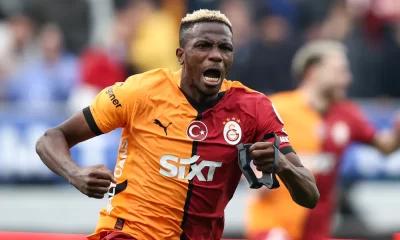
 Football7 days ago
Football7 days agoJuventus prepare €120m bid for Osimhen as summer rebuild plans gather pace

 News1 week ago
News1 week agoFamily demands coroner’s inquest into death of Chimamanda Adichie’s son
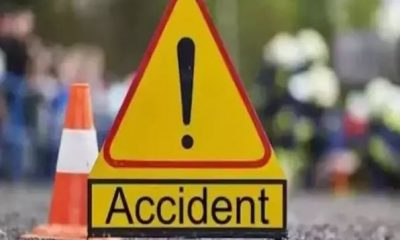
 News1 week ago
News1 week agoMother, son escape death as Lexus SUV overturns three times in Lagos
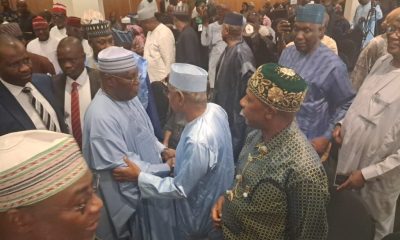
 Latest7 days ago
Latest7 days agoAtiku, Obi, Mark, Amaechi, others meet in Abuja ahead of major press conference
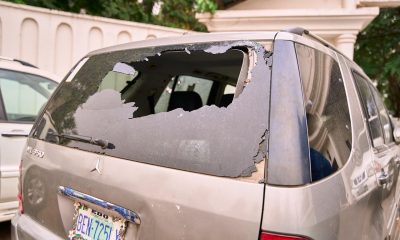
 Latest7 days ago
Latest7 days agoAttack on Obi: APC denies involvement, accuses ADC of playing politics
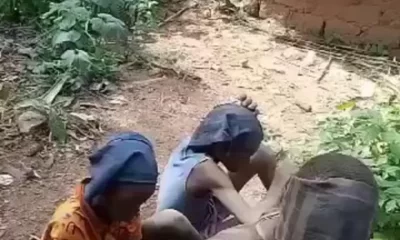
 Crime7 days ago
Crime7 days agoDisturbing video emerges showing bandits beat abducted man, children in Niger State

